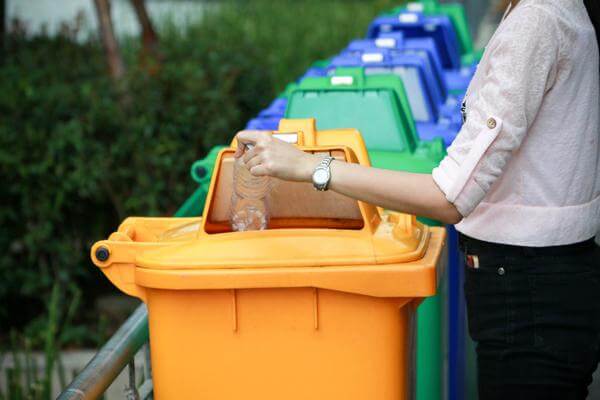Proper waste disposal is crucial for maintaining a clean and healthy environment. Improper disposal of rubbish can lead to pollution, harm to wildlife, and even health hazards for humans. In this article, we will discuss effective methods for disposing of rubbish responsibly.
1. Segregation of Waste:
The first step towards proper waste disposal is segregation. Separating waste into different categories such as recyclables, organic waste, and hazardous materials allows for easier recycling and proper disposal. Many municipalities provide separate bins or collection services for different types of waste, making it easier for residents to segregate their rubbish effectively.
2. Recycling:
Recycling is an essential aspect of waste management. Materials such as paper, glass, plastic, and metal can often be recycled instead of being sent to landfill sites. Check with your local recycling facility to determine which materials they accept and how they should be sorted. By recycling, we can conserve natural resources, reduce energy consumption, and minimise the amount of waste that ends up in landfills.
3. Composting:
Organic waste, such as food scraps and yard waste, can be composted instead of being thrown away. Composting is a natural process that converts organic matter into nutrient-rich soil conditioner. By composting at home or using municipal composting services, we can reduce the amount of waste sent to landfills while also creating valuable compost for gardens and landscaping.
4. Proper Disposal of Hazardous Waste:
Certain items, such as batteries, electronics, and household chemicals, are considered hazardous waste and require special handling. Do not dispose of these items in regular trash bins or pour them down the drain. Instead, take them to designated drop-off locations or hazardous waste collection events. Proper disposal of hazardous waste helps prevent pollution and protects the environment and public health.
5. Reduce and Reuse:
In addition to recycling and composting, reducing consumption and reusing items are important strategies for minimising waste. Choose products with minimal packaging, opt for reusable items instead of single-use ones, and repair or repurpose items whenever possible. By adopting a mindset of reduce and reuse, we can decrease the amount of waste generated in the first place, leading to less strain on our waste management systems.
6. Proper Disposal of Large Items:
When disposing of large items such as furniture, appliances, or electronics, it’s important to follow local regulations. Many municipalities offer bulk waste collection services or have designated drop-off locations for large items. Alternatively, consider donating items that are still in good condition to charities or thrift stores.
7. Education and Awareness:
Finally, education and awareness are key to promoting proper waste disposal practices. Educate yourself and others about the importance of responsible waste management and the impact of improper disposal. Encourage friends, family, and community members to adopt sustainable habits and participate in recycling and waste reduction initiatives.
Conclusion:
Properly rubbish removal is essential for protecting the environment, conserving resources, and promoting public health. By following the tips outlined in this article, we can all play a role in reducing waste and creating a cleaner, healthier planet for future generations. Remember to segregate waste, recycle, compost, dispose of hazardous materials properly, reduce consumption, and raise awareness about the importance of responsible waste management. Together, we can make a difference in our communities and beyond




















